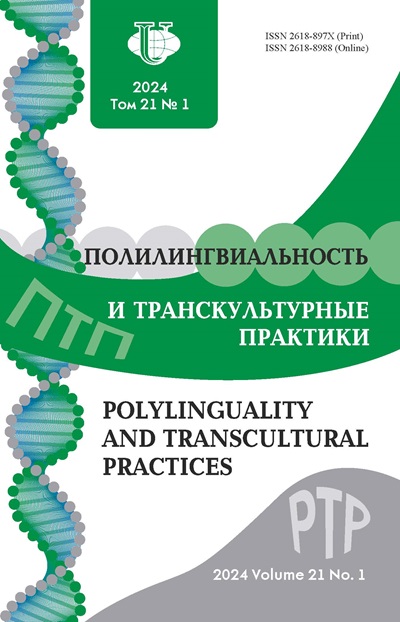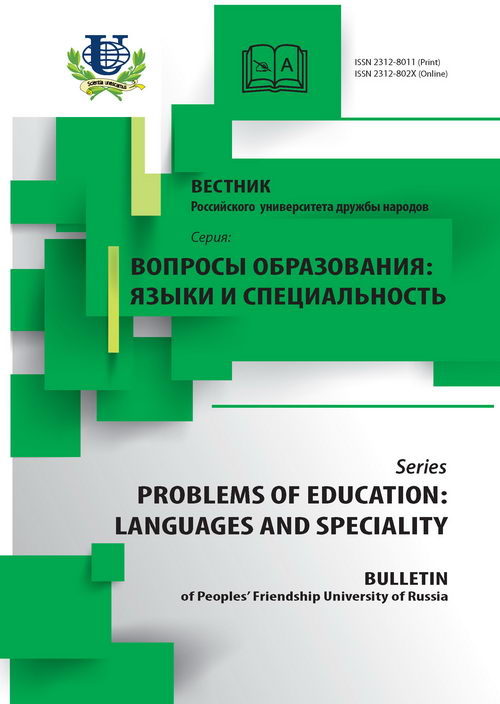DIGLOSSIA AS A SPECIAL FORM OF BILINGUALISM: POLYSOCIOLECTAL NATURE OF THE RUSSIAN LANGUAGE
- Authors: Kharitonova EV1
-
Affiliations:
- North-Eastern State University
- Issue: No 5 (2015)
- Pages: 247-254
- Section: Articles
- URL: https://journals.rudn.ru/polylinguality/article/view/13037
Cite item
Full Text
Abstract
The article is devoted to siciolinguistic aspects of the Russian Language. The nature of interaction between the notions of bilinguism and diglossia, bilingual and diglossial personalities is analyzed. Diglossia is viewed as a pandanus to bilinguism. Heterogenic nature of the Russian language is described through its polysocilectal nature. The article deals with a specific substandard fragment of the Russian language - Soviet camp speech, which is studied using the method of sociolinguistic analysis. The major results of the conducted research are as follows: national language is shown as a whole with a heterogenic structure, consisting of sociolects of different nature, some of which possessing the characteristics of a language, which makes it possible to classify them as “languages inside of a language”. The term ‘biglossia’ is being introduced to fill in the gap between the notions of bilinguism and diglossia to differentiate social dialects and more independent forms of speech, such as different sublanguages inside of a national language.
Keywords
References















